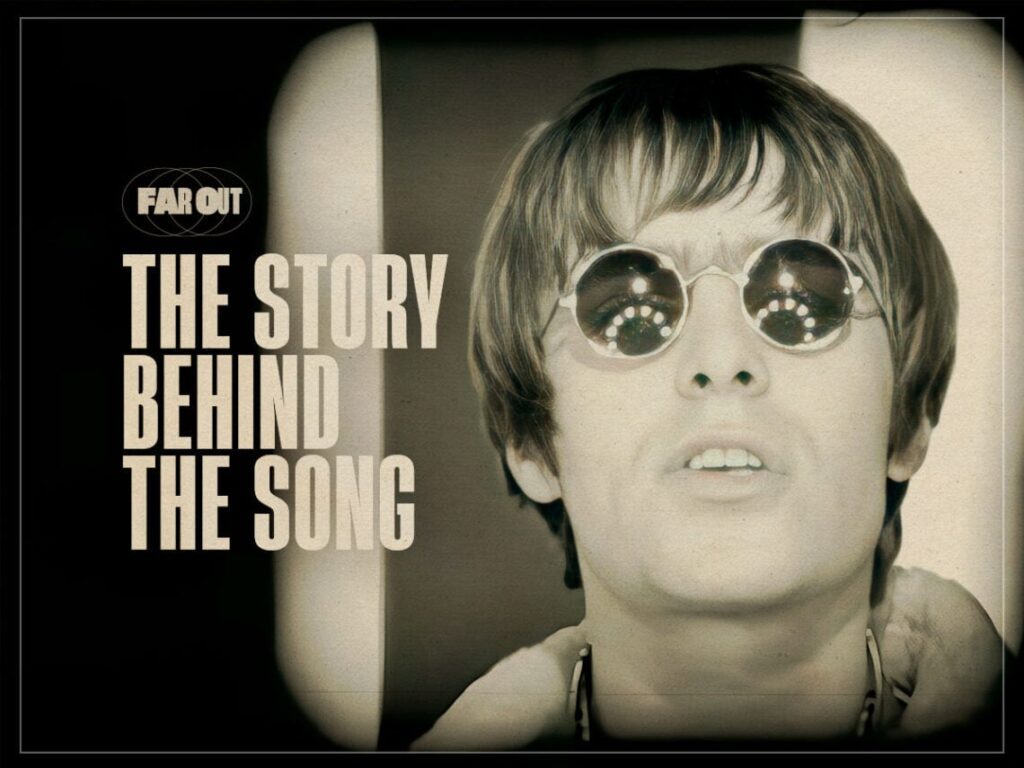The Story Behind The Song: The truth behind Oasis’ unwanted anthem ‘Wonderwall’
 Posted On
Posted On
(Credits: Far Out / YouTube Still)
Nearly 30 years after its initial release, ‘Wonderwall’ by Oasis has become somewhat of an unfair punching bag. Its iconic four-chord strum is often the first thing any 13-year-old tries to master when learning guitar. Years later, at parties, when that one friend pulls out a guitar, you can bet someone will heckle them with, “play ‘Wonderwall!’”.
The seminal hit has become the poster child for entry-level rock music, earning a reputation as the song people love to loathe—likely because we’ve all heard it a million times. But despite your overexposure, you can hardly expect Liam and Noel Gallagher to be booed off stage when they break into it on tour—in fact, quite the opposite.
The reality remains that, despite protests of it being overdone, ‘Wonderwall’ is undeniably the biggest song export of the 1990s, and indeed of modern music history as a whole. It was the track that broke Oasis into America, earned them a number one in Australia and New Zealand, sealing the fate of (What’s The Story) Morning Glory? as one of the most famous albums of all time. Although, interestingly, ‘Wonderwall’ never did quite manage to top the charts at home, being pipped into second place by ‘I Believe’ by Robson and Jerome. Even so, you’d think the Gallaghers would be eternally grateful to their breakthrough hit and lifelong moneymaker… but even they don’t seem to like it that much.
The inception of ‘Wonderwall’ began in May 1995 at Rockfield Studios in Wales, where the band took up a two-week recording residence when producing Morning Glory. Noel, who penned the song, initially came up with the title ‘Wishing Stone’ before changing it after taking inspiration from George Harrison’s 1968 solo album Wonderwall Music. The name, thankfully, is the least contested part of this—because everything else about the version of events in which the song came to fruition seems to be up for debate or is a bit of a selective memory situation.
First of all, there’s the lyrics. With a boast that “I don’t believe that anybody feels the way I do about you now”, followed by the fawning proclamation, “Because maybe/ You’re gonna be the one that saves me/ And after all/ You’re my wonderwall,” has all the makings of your classic love ballad. Indeed, that’s precisely what Noel told NME the song was about in 1996—a declaration to his then-wife, Meg Mathews. However, following their divorce in 2001, he needed to backpedal a little. Noel claimed in an interview the next year: “The meaning of that song was taken away from me by the media who jumped on it. And how do you tell your Mrs it’s not about her once she’s read it is?”
So, what is it really about? Noel replied: “It’s a song about an imaginary friend who’s gonna come and save you from yourself.” Ultimately, it was Harrison’s guiding inspiration that really championed the cause—with the term “You’re my wonderwall” essentially translating to ‘I love you’. It spoke not only to Noel’s rarely seen softer side but also the band’s collective worship of The Beatles, from whom they inevitably learned a thing or two about penning an anthem.
But, in typical fashion, Liam was not pleased with the effort. It was too soft, too melodic, too vulnerable for the blazing rock and roll star—and he also lambasted the fact that Paul ‘Guigsy’ McGuigan didn’t appear on bass, with Noel taking his place. He famously said of the tune’s recording setup: “That’s not Oasis.”
All in all, the tense pressures of recording, eschewing their natural sound, and the subsequent global notoriety that the song would go on to assume made ‘Wonderwall’ the treasure trove Oasis wished they’d never opened. Undeniably, it’s the sonic legacy that will forever outlive them, but until it is well and truly time to call it a day, the Gallaghers will just have to grin and bear their unwanted anthem and its universal acclaim for the rest of their time.
[embedded content]
Related Topics


